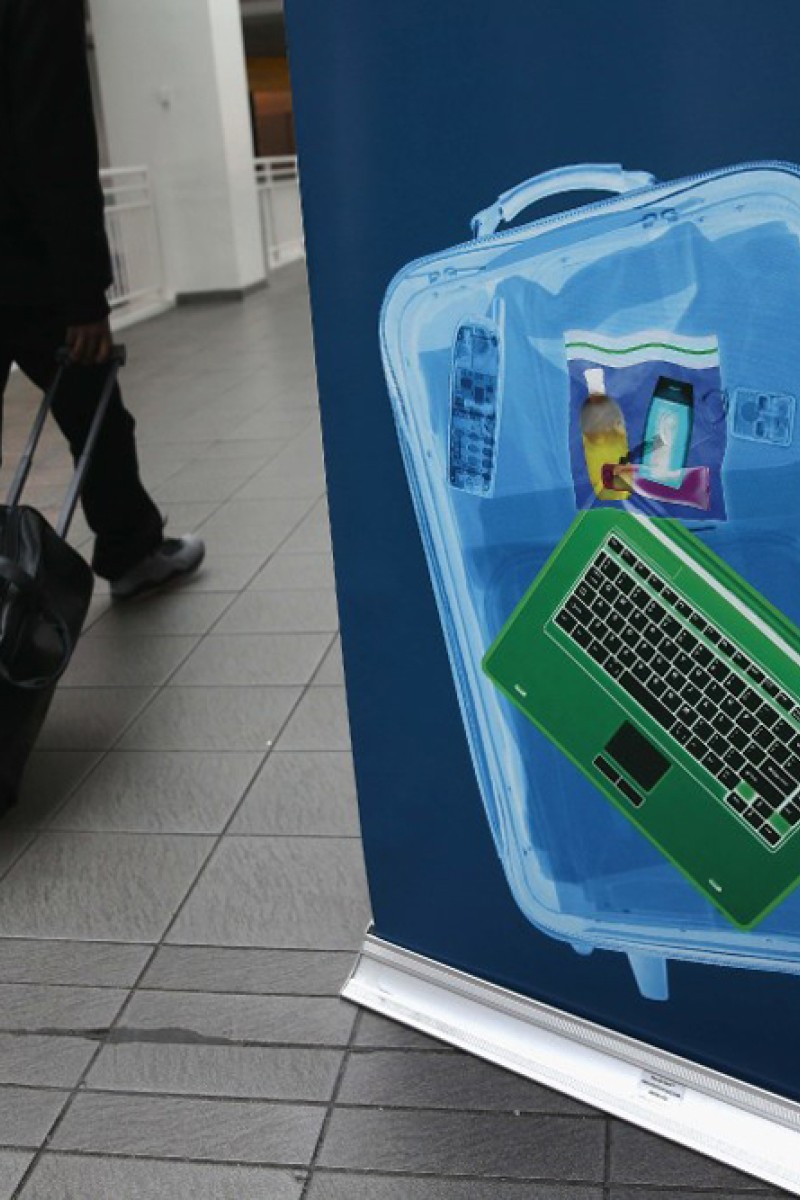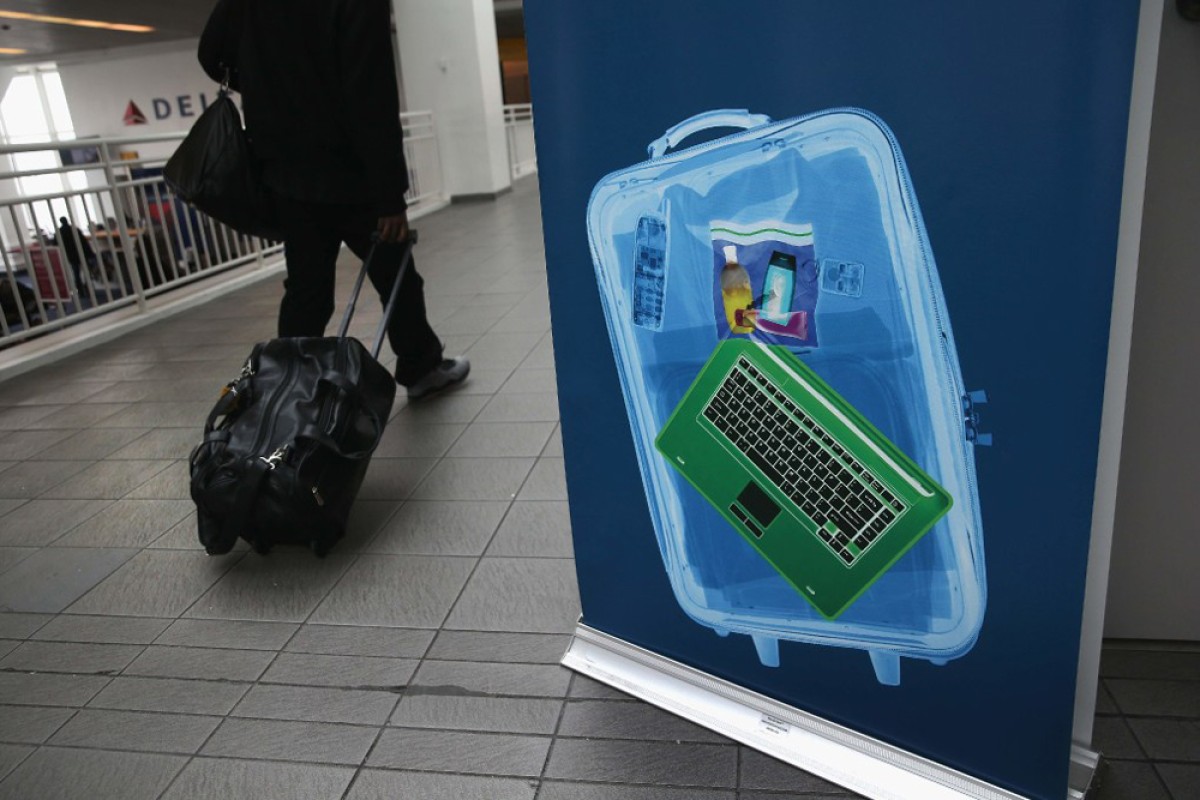
US Homeland Security Secretary John Kelly says this tightening of airline security is a response to “real sophisticated threat” from terrorists
 The US will once again tighten airport security.
The US will once again tighten airport security. Travellers on Hong Kong and mainland airlines should brace for extensive security checks of carry-on bags as the United States considers expanding its ban on laptops and other large electronic items to include all international flights.
Citing a “real sophisticated threat” from terrorists, US Homeland Security Secretary John Kelly on Sunday said Washington was looking to tighten airline security with added screenings of cabin luggage and by expanding the ban on electronic devices larger than a smartphone.
Asked on Fox News whether he would ban laptops from the cabins of all international flights into and out of the US, Kelly said: “I might.”
The US government in March introduced restrictions on large electronic devices, such as laptops, on flights from 10 airports in the Middle East and North Africa. The UK implemented a similar ban for fewer countries. Affected countries conduct additional security checks of passengers’ carry-on luggage at the departure gate.
Aviation experts warned that Cathay Pacific Airways and state-owned mainland carriers could be among the most affected.
Clement Lai Ka-chi, who helped form Hong Kong’s Counter Terrorism Response Unit and was once in charge of the airport’s policing and security, said there needed to be “better X-ray machines” or passengers will face a much longer screening process.
People who try to avoid handing in their laptops would pose a greater security issue, Lai said.
The measures will be a major talking point at the International Air Transport Association annual meeting in Mexico next week. The association estimated that extending a laptop ban to Europe would cost travellers more than US$1 billion (HK$7.7 billion) in lost productivity, longer travel times and laptop rentals.
Airlines in countries affected by the US and UK bans have sought to resolve disruption issues by offering laptop rentals.
Hong Kong’s aviation authority said it was closely liaising with the US Transportation Security Administration, while Avseco, the airport’s security contractor, said it had not received any guidance on implementing enhanced security measures.
As a major provider of premium seating, such as business class, Cathay Pacific’s earnings could be significantly affected, according to Flight Global’s Asia managing editor Greg Waldron.
“For Singapore Airlines and Cathay, if such a ban occurs it could make a dent in their premium bookings, which would probably show up in their earnings given the razor-thin margins that prevail in the industry,” he said.
CAPA Centre for Aviation analyst Will Horton said the ban would be problematic for passengers on Chinese airlines, which do not allow the use of mobile phones even in flight mode. “Chinese airlines may not allow passengers to use any electronic devices on flights to the US if the ban is extended to Asia,” he said.
Young Post junior reporter Angelina Wang, 15, from Chinese International School did not welcome the ban because it could be extremely inconvenient. “While alternative services like rentals exist, you can’t copy any files you have done during the flights,” she said.
Angelina believed there were other better options, such as improving x-ray systems.
Another junior reporter Cedric Li, 17, from Sha Tin College said having more stringent boarding checks would only be marginally better, and as a result, policies should be re-evaluated before a decision can be made.
Clement O’Young, 15, from Sha Tin College told Young Post that laptops were sometimes unnecessary as the flight entertainment and other devices could be a good solution to the security issues. “Every passenger should make safety a priority,” he said.